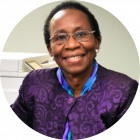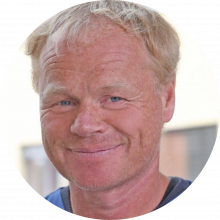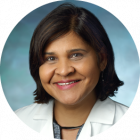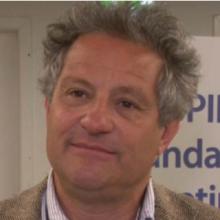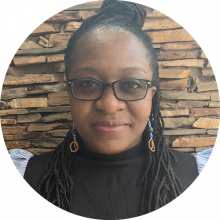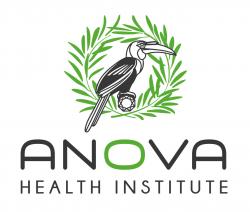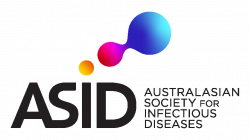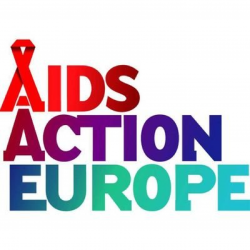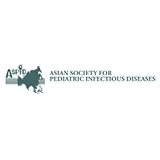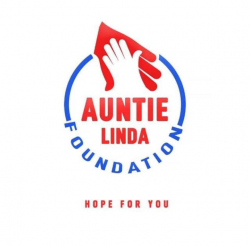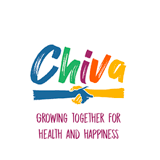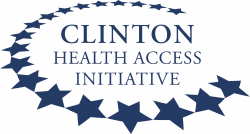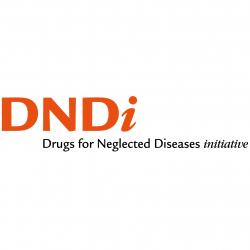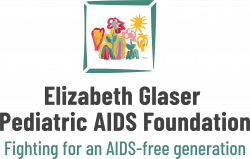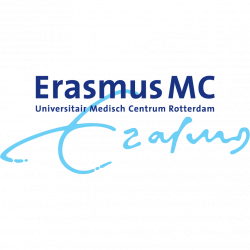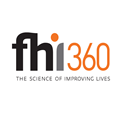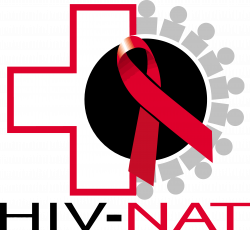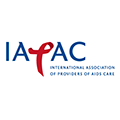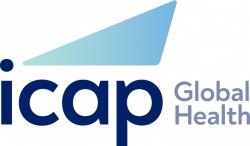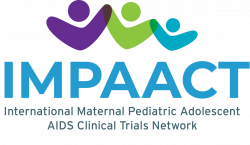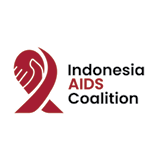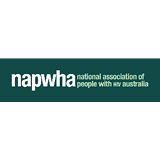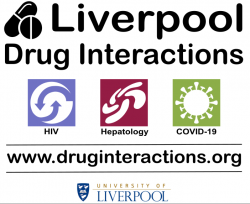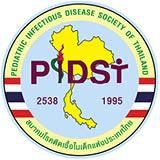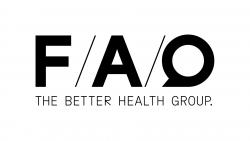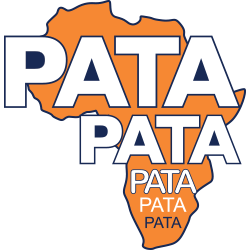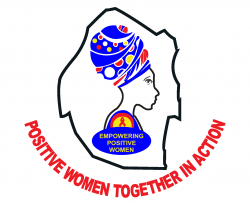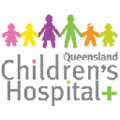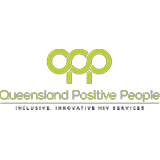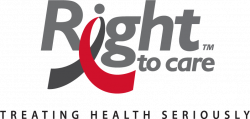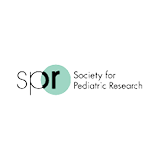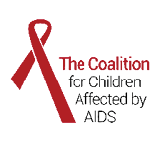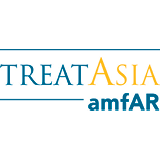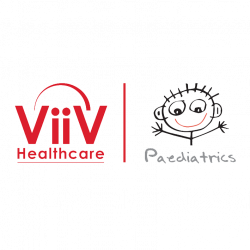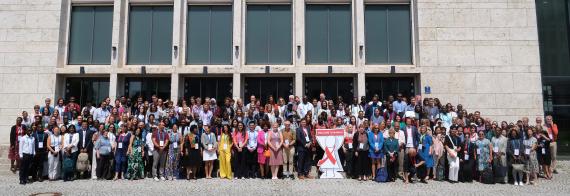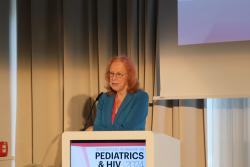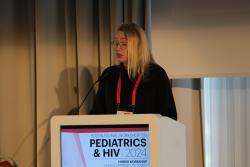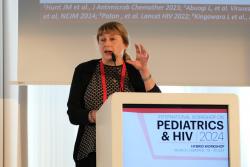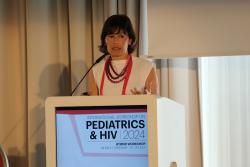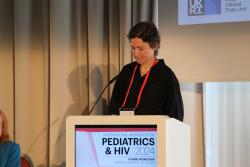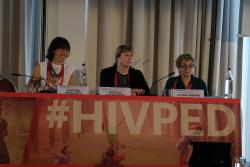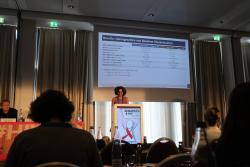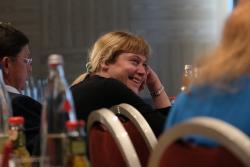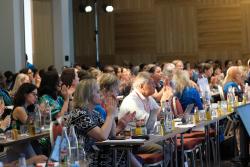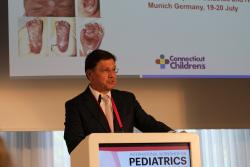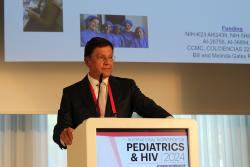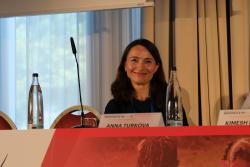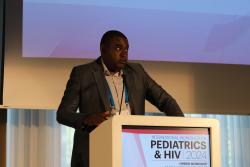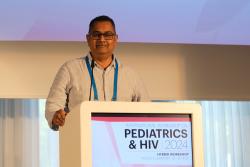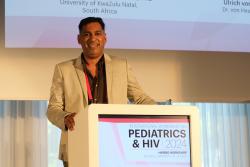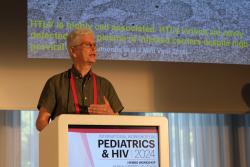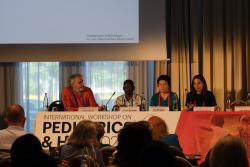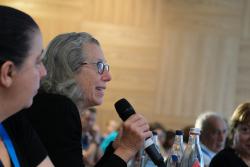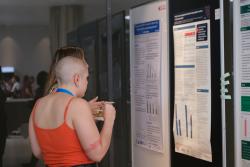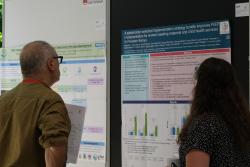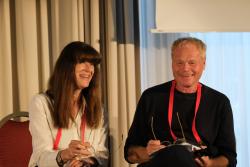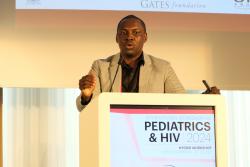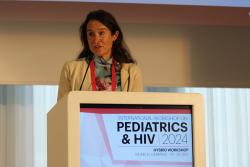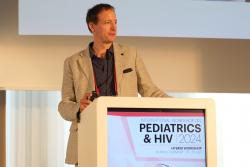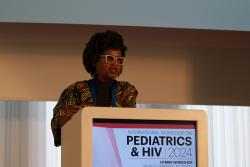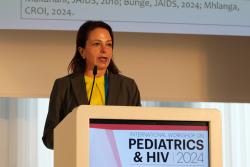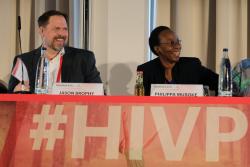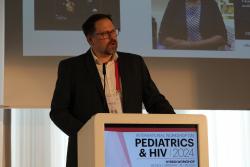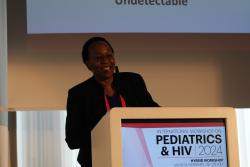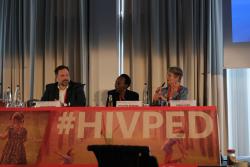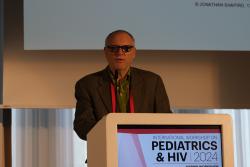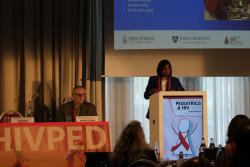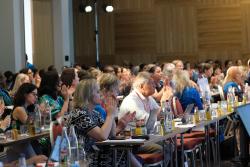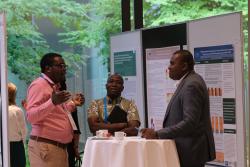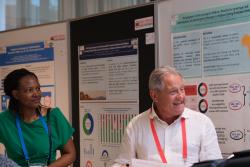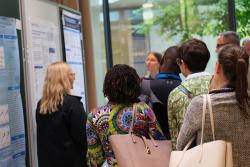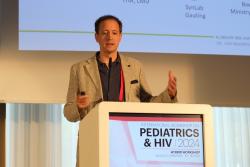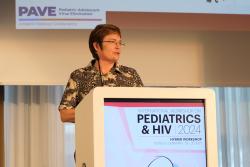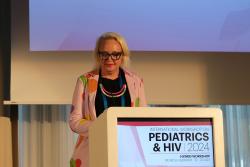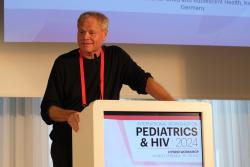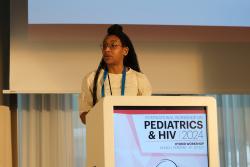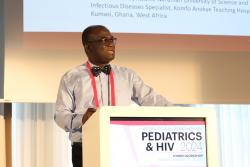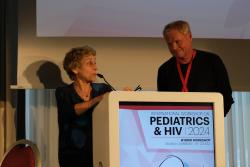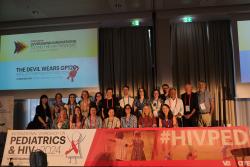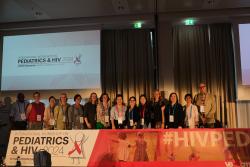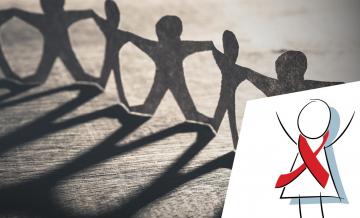The presentation videos and slides for speakers’ lectures are made available, provided that they have granted us permission to do so.
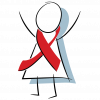
International Workshop on Pediatrics & HIV 2024
Related Enduring Materials
Friday, 19 July 2024
Saturday, 20 July 2024
Welcome
The 16th International Workshop on Pediatrics & HIV took place in a hybrid format from 19-20 July 2024 in Munich, Germany.
The International Workshop on Pediatrics & HIV 2025 will take place from 11-12 July 2025 in Kigali, Rwanda.
Although we have witnessed a dramatic global scale-up of antiretroviral treatment (ART) as well as efforts to prevent vertical HIV transmission in the last decade, there were 150,000 new pediatric infections in 2021 and an estimated 1.68 million children <15 years of age living with HIV. Children are substantially less likely than adults to be diagnosed, initiate treatment, and achieve durable viral suppression. Currently, only 54% are receiving ART, and treatment of pediatric HIV, particularly in infants and young children, remains complex and problematic, with continued use of suboptimal ART formulations and regimens.
Furthermore, adolescents are one of the most rapidly growing populations with HIV; in 2021, there were an estimated 410,000 new HIV infections among young people aged 15- 24 years, accounting for 27% of all new HIV infections globally. HIV infections among adolescent girls and young women are 65% higher than among adolescent boys and young men of the same age, with 4,900 new infections occurring in young women weekly. HIV remains one of the leading causes of death among adolescents living in Africa and among the top 10 causes of death in adolescents globally. The uptake of HIV testing among adolescents has remained low. Programs continue to struggle to reach and retain adolescents in care, and adherence to treatment has special challenges, particularly among those with perinatal infection aging up into adolescence and young adulthood.
As research to improve pediatric HIV diagnosis and care is ongoing, new scientific questions of critical importance have also emerged. In settings with mature ART programs, an increasing proportion of new pediatric infections is attributed to women acquiring HIV infection during pregnancy and breastfeeding, periods of markedly increased risk of HIV acquisition for the mother. With the scale-up of ART for PMTCT, the prevalence of pre-treatment antiretroviral (ARV) drug resistance, particularly to non-nucleoside reverse transcriptase inhibitor drugs, has escalated among newly diagnosed infants, jeopardizing ART effectiveness. Additionally, with more than 1.3 million pregnant women globally receiving ART, there are increasing concerns about the long-term impact of in utero and postnatal exposures to medications for those children who escape HIV.
Currently, the global population of HIV-exposed uninfected children and adolescents is estimated at 14.8 million, including over 8 million with in-utero ARV exposure. An initial early report of an association with periconception dolutegravir exposure and increased risk of neural tube defects, which upon an increase in the number of periconception exposures subsequently is no longer found, has underscored the need for ongoing attention to surveillance of safety of ARVs in pregnancy. Innovation in early infant diagnosis such as point-of-care tests has facilitated earlier identification of HIV infection during infancy, providing exciting new opportunities to study acute infection and very early treatment in neonates and promising remission strategies. However, despite the critical importance of these topics, research in pediatric, adolescent, and maternal HIV infection is often neglected at major scientific HIV conferences.
Therefore, in collaboration with leading experts in the field, we have established a highly focused international workshop on the prevention and treatment of pediatric HIV. The overall objective of the International Workshop on HIV & Pediatrics is to stimulate research that will advance prevention and treatment strategies for infants, children, and adolescents.
Local Co-Chairs 2024
Workshop Chairs
General Information
- Clinicians
- Nurses
- Industry specialists working in academic settings, hospitals, and non-governmental organizations (NGO)
- Enhancing communication and encouraging collaboration between junior and senior investigators, north and south, and academia, governmental public health agencies, and industry to promote advances in HIV prevention and care in children, adolescents and families.
- Disseminating knowledge and data exchanged by workshop participants beyond the audience of the live event through posting of all presentations on the meeting website, thus maximizing the impact of the meeting by reaching the whole HIV research community.
- Providing updates on the latest research on new pediatric antiretroviral drugs and treatment and prevention strategies in children and adolescents.
- Understanding how to optimize recognition and treatment of advanced HIV disease in children and adolescents.
- Providing updates on new strategies for HIV prevention in children, adolescents and pregnant women, including long-acting antiretroviral agents and HIV vaccines.
- Evaluating effectiveness of and gaps in programs for the prevention of perinatal HIV transmission and interventions to improve such programs.
- Sharing results of implementation science research on how to optimally implement programs for prevention or treatment of HIV in infants, children, adolescents and pregnant women in developing countries.
- Understanding the complications of long-term HIV infection and its therapy, to enable improved management of HIV in children and adolescents.
- Providing update on prevention or treatment of coinfections, such as tuberculosis and hepatitis C, in children and adolescents.
Practical Information
Translation will not be provided.
Any individual who feels discriminated against, harassed, disrespected, or marginalized is encouraged to report the incident(s) to VE and AME via info@amededu.com or to one of our on-site personnel.
Any participant who is found to have exhibited any inappropriate conduct or behavior against others may be removed from the program.
Towards HIV Cure and Control in Children and Adolescents Everywhere: Past, Present, and Future
Workshop Chairs 2024
Scientific Committee
We are proud to present the members of the committee:
-
Adam Bartlett, BSc, MBBS, MPHTM, PhD, FRACP - Sydney Children's Hospital / Kirby Institute, Australia
-
Jason Brophy, MD, MSc, DTM, FRCPC - Children's Hospital of Eastern Ontario, Canada
-
Ellen Chadwick, MD - Ann & Robert H. Lurie Children’s Hospital of Chicago / Northwestern University Feinberg School of Medicine, United States
-
Tsungai Chipato, MBChB - University of Zimbabwe College of Health Sciences, Zimbabwe
-
Polly Clayden - HIV i-Base, United Kingdom
-
Anita De Rossi, PhD - University of Padova / Istituto Oncologico Veneto (IOV)-IRCCS, Italy
-
Marinella Della Negra, MD, PhD - Hospital Emilio Ribas, Brazil
-
Brian Eley, MD - University of Cape Town, South Africa
-
Albert Faye, PhD - Denis Diderot University, Paris, France
-
Rashida Ferrand, MBBS, FRCP, PhD - London School of Hygiene and Tropical Medicine / Biomedical Research and Training Institute, Zimbabwe
-
Patricia Flynn, MD - St. Jude Children's Research Hospital, United States
-
Tessa Goetghebuer, MD - Office de la Naissance et de l'Enfance / CHU Saint-Pierree, Belgium
-
Ali Judd, PhD, University College London, United Kingdom
-
Valériane Leroy, MD - Inserm, Paris, France
-
Chewe Luo, MD, PhD - UNICEF, United States
-
Dorothy Mbori-Ngacha, MBChB, MMed, MPH - Independent Consultant, Kenya
-
Immaculate Mutisya, MMed - Centres for Disease Control and Prevention, Kenya
-
Sharon Nachman, MD - SUNY Stony Brook / IMPAACT, United States
-
Clare Nourse, AM, BA, MB, BCH, BAO DCH, MRCPI, FRACP, MD - Children's Health Queensland / University of Queensland, Australia
-
Paul Palumbo, MD - Dartmouth-Hitchcock Medical Center, United States
-
Martina Penazzato, MD, MSc, PhD - World Health Organization, Switzerland
-
Kathleen Powis, MD, Massachusetts General Hospital, United States
-
Natella Rakhmanina, MD, PhD, FAAP, FCP, AAHIVS - Elizabeth Glaser Pediatrics AIDS Foundation / Children’s National Hospital, United States
-
Theodore Ruel, MD - UCSF Benioff Children's Hospital San Francisco, United States
-
George Siberry, MD, MPH, FAAP, FPIDS - United States Agency for International Development (USAID), United States
-
Lynda Stranix-Chibanda, MBChB, MMed - University of Zimbabwe, Zimbabwe
-
Tavitiya Sudjaritruk, MD, ScM, PhD - Chiang Mai University, Thailand
-
Graham Taylor, MD - Imperial College, United Kingdom
-
Claire Thorne, BA, MSc, PhD - University College London, United Kingdom
-
Priscilla Tsondai, MBChB and MPH, International AIDS Society, South Africa
-
Marissa Vicari - UNAIDS, Switzerland
-
Rachel Vreeman, MD, MS - Icahn School of Medicine at Mount Sinai, United States
Endorsers
Pediatrics & HIV 2024 is endorsed by societies and organizations. Their support and collaboration are key to the success of this workshop!
If you would like your organization to endorse the International Workshop on Pediatrics & HIV 2024, please contact Christina Moustakaki at Christina.Moustakaki@amededu.com
Support Our Initiative
Financial backing helps us deliver an impactful meeting experience to the benefit of healthcare professionals and researchers interested in Pediatrics & HIV.
This collaboration plays a vital role in both the organizational as well as scientific success of the program.
To show your commitment to the cause, get in touch with us for a tailored
support package by contacting Ms. Karin Siebelt at Karin.Siebelt@amededu.com.
Benefits of Support
By supporting this program, we can offer the following advantages for your company.* Please contact us for the most recent support level benefits for this program.
- Symposium opportunities
- Non-commercial interviews with company representatives
- Verbal acknowledgement during the program
- Discounted and complimentary registrations for your representatives
- Company acknowledgement on digital meeting materials including but not limited to newsletters, flyers, the streaming platform, and our website
- Company acknowledgement on printed meeting materials including but not limited to banners and the program book
- Digital and printed advertising opportunities
- Social media shout-outs
- Logo on the conference bag
*Subject to the support level.
Accreditation Statement

The International Workshop on Pediatrics & HIV 2024, Munich, Germany, Germany 19/07/2024 - 20/07/2024 , has been accredited by the European Accreditation Council for Continuing Medical Education (EACCME®) with 12.5 European CME credits (ECMEC®s). Each medical specialist should claim only those hours of credit that he/she actually spent in the educational activity.
Through an agreement between the Union Européenne des Médecins Spécialistes and the American Medical Association, physicians may convert EACCME® credits to an equivalent number of AMA PRA Category 1 CreditsTM. Information on the process to convert EACCME® credit to AMA credit can be found at https://edhub.ama-assn.org/pages/applications .
Live educational activities, occurring outside of Canada, recognised by the UEMS-EACCME® for ECMEC®s are deemed to be Accredited Group Learning Activities (Section 1) as defined by the Maintenance of Certification Program of the Royal College
of Physicians and Surgeons of Canada.
Penta’s Young Reporters at the International Workshop on Pediatrics and HIV 2024
Arriving at the International Workshop on Pediatrics & HIV 2024, we felt a mix of nerves and excitement, knowing we were about to be surrounded by experts who spend their careers understanding and fighting the virus we live with every day. But as Young Reporters, we were determined to make sure we take what we can understand to share with other young people who need this knowledge.
The presentation by Anna Yakutsk from UNAIDS made us feel that we were not alone, but part of a global community. But it also made us feel sad that so many new infections are still happening. As she spoke about the significant strides made in pediatric HIV and the importance of ensuring access to testing and treatment, we considered that it's one thing to manage the medical side of HIV, but the emotional and social challenges can feel overwhelming. This was later highlighted by a session at the end of Day 2 which showed the impact of what youth-friendly HIV services can do for us.
One of the most enlightening sessions I attended was on the reasons for resistance of antiretroviral therapy for children. Dr. Natella Rakhmanina explained in such a way that made us feel like we understood what people mean when they say treatment ‘fails’. Hearing about this has inspired us to think about how we can support young people to talk to their doctors about this experience and the support needed to get through it. We have much to celebrate as new treatments become available, but for some of us, these are not options and this disappointment can be heavy to hold. But the reasons Natella shared helped us understand this better and not feel ashamed about medicine resistance.
One of us took part in the Youth Panel, which explored the shared stories of young people through diagnosis, transition and their treatment journey. We all felt proud to see the panel share experiences that are shared by many of us living with HIV. The spirit of resilience and advocacy shone through the session.
Though we were nervous to attend and did not understand all of the science details, it was a good experience. It gave us hope for the future, a greater understanding of the challenges we face, and a determination to advocate for ourselves and others living with HIV. The knowledge we gained we will share with our peers and it has helped us a lot.
Young Reporters 2024
For more information, you can find the the full article here: https://penta-id.org/news/penta-young-reporters-journey-at-the-international-workshop-on-pediatrics-and-hiv/
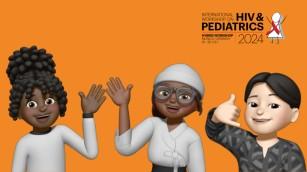
15th Anniversary of the International Workshop on HIV & Pediatrics
Previous Editions
- 15th Edition - International Workshop on HIV & Pediatrics 2023, Australia
- 14th Edition - International Workshop on HIV Pediatrics, 2022, Canada
- 13th Edition - International Workshop on HIV Pediatrics, 2021, Virtual
- 12th Edition - International Workshop on HIV Pediatrics, 2020, Virtual
- 11th Edition - International Workshop on HIV Pediatrics, 2019, United States
- 10th Edition - International Workshop on HIV Pediatrics, 2018, The Netherlands
- 9th Edition - International Workshop on HIV Pediatrics, 2017, France
- 8th Edition - International Workshop on HIV Pediatrics, 2016, South Africa
- 7th Edition - International Workshop on HIV Pediatrics, 2015, Canada











